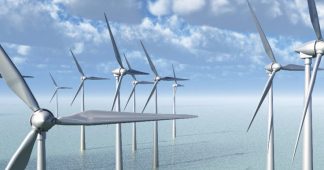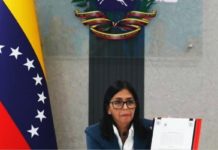Costa Rica receives UN’s highest environmental honour
By Sep. 23, 2019
Costa Rica has been declared the winner of the 2019 Champions of the Earth award, the UN’s highest environmental honour.
The UN Environment Programme (UNEP) said it chose the Central American country for its role in the protection of nature and its commitment to ambitious policies to combat climate change.
It recognises Costa Rica as a world leader in sustainability, having drafted a detailed plan to achieve net zero emissions by 2050, in line with the Paris climate agreement and the UN’s Sustainable Development Goals, which it hopes provides a template for other nations to curb their emissions.
More than 98% of Costa Rica’s energy comes from renewable sources and forest cover stands at more than 53% after work to reverse decades of deforestation.
In 2017, the country was powered solely by renewable energy sources for a record 300 days and aims to achieve 100% renewable electricity by 2030.
Read more at https://www.energylivenews.com/2019/09/23/costa-rica-receives-uns-highest-environmental-honour/
Costa Rica produces 98.84% of its power from renewables in 2019
Sept. 27, 2019
The share of renewables in Costa Rica’s power generation system reached 98.84% so far in 2019, Costa Rican government-run power company Instituto Costarricense de Electricidad (ICE) said Tuesday.
According to data from the National Centre for Energy Control (CENCE) cited by ICE, the Central American country has maintained the trend of keeping the annual share of the renewable generation above 98% since 2015.
Read more at https://renewablesnow.com/news/costa-rica-produces-9884-of-its-power-from-renewables-in-2019-670622/
Costa Rica hosts pan-Americas marine energy event
June 18, 2019
The first Pan-American Marine Energy Conference (PAMEC) dedicated to promoting research and development (R&D) in all marine energy technologies across the Americas will be held in 2020.
The conference, which will take place in San Jose, Costa Rica in January, is being organised by PAMEC Energy Association.
The aim is to complement similar research collaboration conferences, including the European Wave and Tidal Energy Conferences (EWTEC) and the Asian Wave and Tidal Energy Conference (AWTEC).
Read more at https://renews.biz/53797/costa-rica-hosts-pan-americas-marine-energy-event/
What can Cabo Verde do to achieve 100% electricity from Renewables? Tips from Costa Rica
May 29, 2019
Almost 600km off the Senegalese coast you will find Cabo Verde or Cape Verde, a paradisiac small island, which aims to generate 100% of its electricity supply from renewable energy. The archipelago nation can look at Costa Rica’s example to achieve its goals. Over the last four years, the South American nation met 99% of its electricity demand via renewables.
This petite island, despite having an overabundance of renewable energy sources, has never fully exploited them. It has the northeasterly trade winds, plenty of free sunlight, and lots of geothermal resources waiting to be exploited.
Read more at https://www.renewablesinafrica.com/cabo-verde-renewables-costa-rica/
Renewable energy in Costa Rica
Renewable energy in Costa Rica supplied about 98.1% of the electrical energy output for the entire nation in 2016. Fossil fuel energy consumption (% of total energy) in Costa Rica was 49.48 as of 2014, with demand for oil increasing in recent years. In 2014, 99% of its electrical energy was derived from renewable energy sources, about 80% of which from hydroelectric power. For the first 75 days of 2015, 100% of its electrical energy was derived from renewable energy sources and in mid 2016 that feat was accomplished for 110 consecutive days despite suboptimal weather conditions. As a country, Costa Rica has a geographic advantage over others in that its high concentration per capita of rivers, dams, and volcanoes allows for a high renewable energy output. In addition, Costa Rica is the fourth highest nation in terms of rainfall per capita: it receives an average of 2,926mm of precipitation per year. As a smaller nation with a population of only 5 million and no major industry, the need for strong energy infrastructure is less than for larger countries of higher population density. The 1948 elimination of the military of Costa Rica freed up millions of dollars from the government defense budget which are now invested in social programs and renewable energy generation.
Read more at https://en.wikipedia.org/wiki/Renewable_energy_in_Costa_Rica











